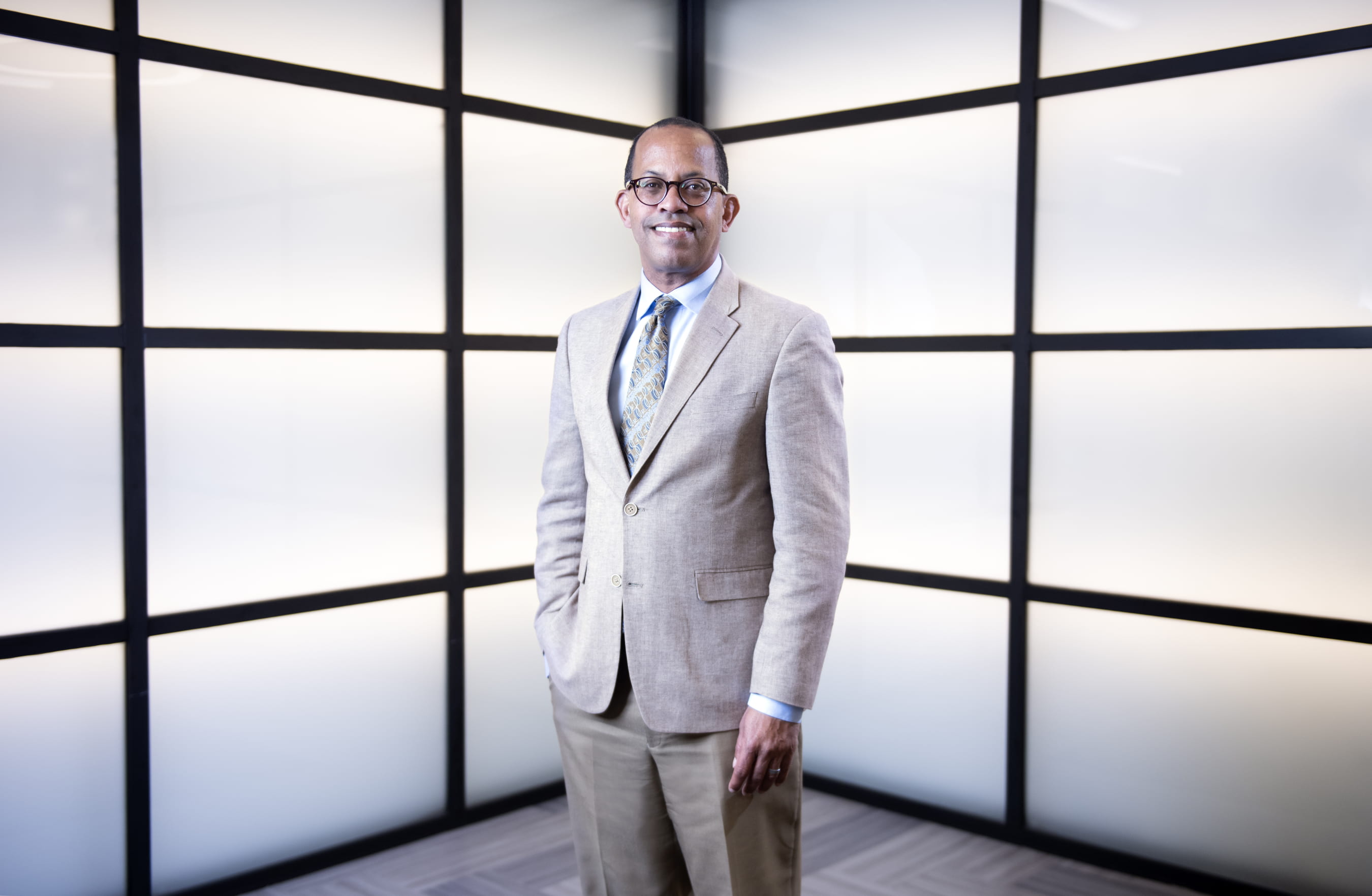Originally published in the Winter 2019 issue of UCI Magazine.
Speaking Freely
Three questions with Michelle Deutchman

The free speech movement was born at UC Berkeley three decades before Michelle Deutchman was an undergraduate there, yet its growing pains were still evident when, during her freshman year, in 1994, she found herself amid a violent student protest over a controversial speaker. That sparked an abiding interest in free speech issues that ultimately led to her being named the first executive director of the University of California’s National Center for Free Speech and Civic Engagement in May 2018.
The Southern California native earned a bachelor’s degree in political science at UC Berkeley in 1997 and a law degree at USC in 2002. She has spent the majority of her career in civil rights advocacy, free speech issues and education, much of it with the Anti-Defamation League, where she most recently served as national campus counsel, overseeing relations between the ADL and colleges across the country. She continues to lecture on First Amendment matters at the UCLA School of Law. Since starting at the center, Deutchman has been guiding its fellows program; meeting with educators, administrators and other stakeholders in the issues of speech on campus; and organizing the center’s first conference, to be held in Washington, D.C., in March.
At her University Tower office, just off campus, Deutchman discussed her new role with UCI Magazine contributor Jim Washburn.
Q: What was the event at UC Berkeley that engaged your interest in free speech rights?
When I was a freshman, a student group brought David Irving, a Holocaust denier, to campus. That was very shocking to me, and I was part of a silent candlelight vigil to protest his being there. Next to us was a group of anarchists who were using a log to try to bash down the door where he was speaking, and the riot police showed up.
Because I was interested in all the related speech and policy issues, I interned with the ADL in Washington, D.C., in the summer of 1995. Then I went to work for them a year after I got my law degree. A huge portion of what I did with them concerned the First Amendment and free speech. In the last several years, I focused more on college campus speech in particular.
The ADL has been a very strong supporter of the First Amendment. Much of what I was doing there was arriving at ways to respond to speech on campuses that people might find heinous or offensive without stifling it. I continue to believe that the underpinning of free speech is that all voices must be heard.
“Whether speech is protected or not is the easy question. The hard question is: When ugly speech is protected, which it usually is, what do you do in the face of that?”
Q: What are some goals of the National Center for Free Speech and Civic Engagement?
You want to have inclusive, diverse and equitable campuses, while at the same time making sure you’re a safe guardian of robust ideas. One goal of the center is to think about, talk about and come up with ways to effectuate that, to balance those two things.
Our intent is to be a dedicated place for researching and making contributions to the study of free speech, so we won’t just be reactive to speech-related events but can be proactive.
Universities and colleges are thinking about and struggling with these issues. The center will be sharing best practices from across the country as well as developing policies on topics ranging from student conduct to handling potentially disruptive speakers or events on campus.
Q: Provocative speakers and controversial issues have indeed resulted in campus disruptions. Where does one begin in addressing that?
Whether speech is protected or not is the easy question. The hard question is: When ugly speech is protected, which it usually is, what do you do in the face of that? How do you help people who feel targeted by that speech – and vulnerable? When does the university use its bully pulpit to make a statement, to perhaps say, “This person is allowed to speak here, but we don’t support their views”?
The center aims to be at the intersection of figuring out not only how we safeguard speech but how speech can be utilized to fulfill the mission of higher education, which is intellectual curiosity and robust discussion and challenging each other.
While there are some important issues that certainly need to be worked out, the idea that there’s some sort of crisis regarding speech on campuses is overstated. It’s important to remember that free speech is happening on campuses every day across the country, in class, in dorms, in the quad. Universities offer an unparalleled opportunity to share and learn from people who are different from you – politically, ethnically, religiously, socioeconomically, culturally.

